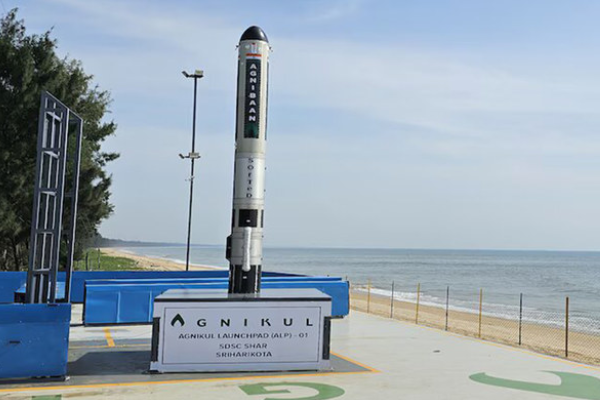India created space history on Thursday when it successfully launched its second privately manufactured rocket—the first to use a combination of liquid and gas fuel from a private launchpad.
Agnibaan SOrTeD (suborbital technological demonstrator), a single-stage technology demonstration rocket built by Chennai-based AgniKul Cosmos, took off from Sriharikota.
SOrTeD makes use of the first single-piece 3D-printed engine in history, which was created and manufactured domestically. This comes after the business decided to cancel Tuesday’s test flight of its first rocket, only a few seconds before it was scheduled to take off.
This launch is also regarded historic because the Indian Space Research Organisation (Isro) has yet to successfully fly a semi-cryogenic engine, which uses a mixture of liquid and gas as a propellant.
Read Also
Agnibaan also has the distinction of being launched from India’s first private launchpad, Dhanush, founded by AgniKul.
The business plans to launch an orbital mission by the end of 2024-25 and is working with customers on flights that will begin regularly in the calendar year 2025.
S Somanath, chairman of Isro, said, “The Department of Space and Isro congratulate AgniKul Cosmos on the successful launch of Agnibaan SOrTeD. The success involving many firsts, including 3D-printed semi-cryogenic engines, flight control systems, etc., demonstrates the prowess of indigenous design and innovation. It motivates Isro to support space startups and non-governmental entities for innovation and atmanirbharta to create a vibrant space ecosystem in the country.”
Prime Minister Narendra Modi on Thursday lauded the successful launch of a rocket, powered by the world’s first single-piece 3D-printed semi-cryogenic engine, as a “momentous occasion” for India’s space sector.
Modi, in a post on X, said, “A remarkable feat that will make the entire nation proud! The successful launch of the Agnibaan rocket powered by the world’s first single-piece 3D-printed semi-cryogenic engine is a momentous occasion for India’s space sector and a testament to the remarkable ingenuity of our Yuva Shakti. My best wishes to the @AgniKulCosmos team for their future endeavours.”
The key purpose of this mission, which is also AgniKul’s first flight, is to serve as a test flight, demonstrate in-house and home-grown technologies, gather crucial flight data, and ensure optimal functioning of systems for AgniKul’s orbital launch vehicle, the ‘Agnibaan’.





